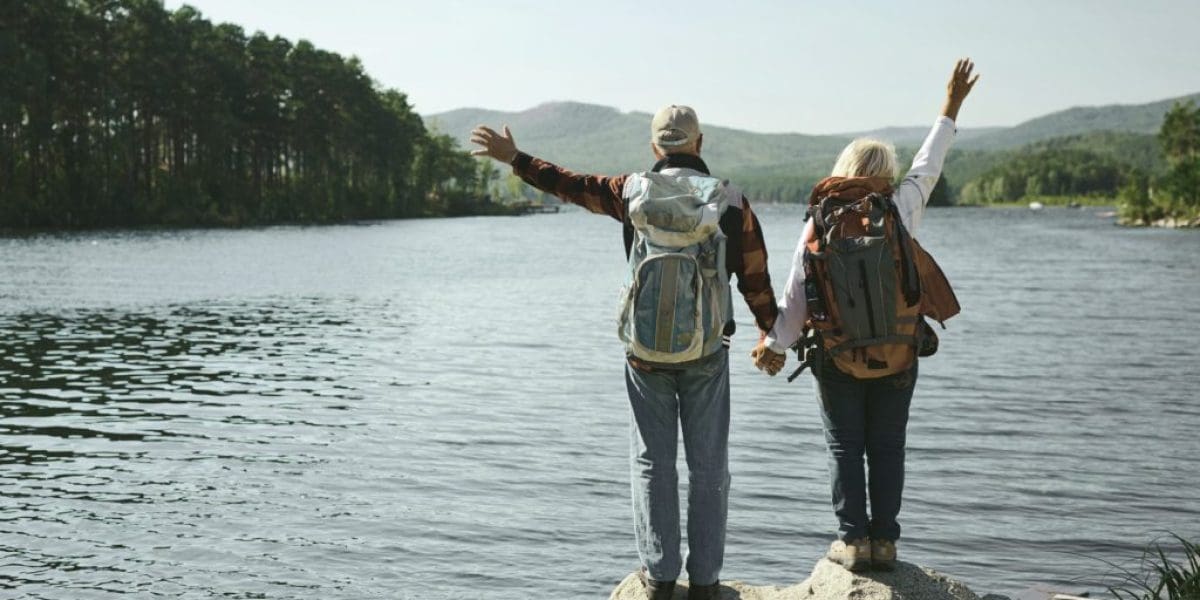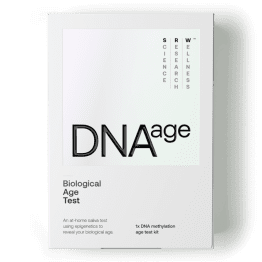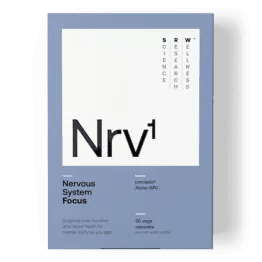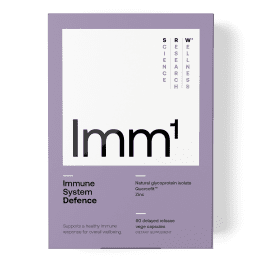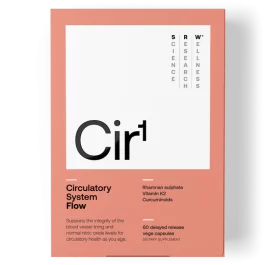The Science Behind a Longer Life
Pharmacist, technologist, and entrepreneur Greg Macpherson has become an expert in the ageing process at a cellular level and in fact, he wrote the book on it with, “Harnessing the Nine Hallmarks of Aging: to live your healthiest life.”. But he is not just talking about the science that is changing how long we live and how we live, he has also launched SRW Laboratories, a science- a research-based company that curates the latest biotechnology research to formulate natural products designed to help slow the onset of ageing and disease to give people a longer life. Greg shares with us his journey into a life focused on extended life and what we can all do to get the most out of our lives.
It’s been a funny year in terms of health. Was this part of the motivation for you to get busy and put out a book about living longer?
No, not at all. It just came together in roughly the same year. The reason I wrote the book was that I was starting to see that there were advances in cellular aging, and it’s not particularly accessible unless you understand how to read all these scientific papers.
The purpose was just to decipher it. I’m a pharmacist by profession and we translate complex health information so that people can understand it. I had 30 years’ worth of training to be able to look at this and go, ‘This is interesting and we can help people’.
It almost seems like that kind of information is purposefully complex to make it harder to understand.
With Google, that knowledge is democratised now, so anybody can get their hands on it. But it’s still really complex to understand.
Health is like a black box that is not easy to understand. You look at it and go, ‘how does this work and how does it all fit together?’ It’s super complex. My role as a pharmacist is to translate that for people so that they can understand it and make use of it day to day.
What was the catalyst for you to decide that now was the time to connect the mainstream audience with this information and some of the evolution that’s happening in terms of our understanding of ageing?
I’m just a science and technology geek from way back. I’ve always been interested in ageing. In my previous role, I was the Chief Executive of a biotech company that was doing some really interesting things around mitochondria. I left there 18 months ago and took a bit of time out and took the opportunity to start reading a whole bunch more.
It became apparent to me that it’s not just about mitochondria; all elements of cells change as we age. I thought that now it’s time to just make it easier. To be honest, it wasn’t actually a conscious decision. I just got cracking on a project and realised there was something here that would be useful for people.
What were some of the hurdles in terms of you bridging that gap when bringing this complex science to the mainstream?
There were some significant hurdles, enough to be dangerous. I went into this understanding maybe 30, 40% of it, but there were really challenging topics out there to get my head around that took me quite a long time. It wasn’t easy.
An example of that is there’s a particular switch that we’ve got in our cells, which dictates how our body responds or acts, whether we’ve eaten recently or not. If we don’t, it triggers a cascade that cleans out cells and does good things for us. That particular topic really tripped me up for a good few months, but that’s part of the challenge getting into this and starting to understand it to a level where I can start to explain it.
Can you explain a little bit further about some of the concerns that you had?
One of the factors is that we have to be really careful as health professionals when we talk about what you should and shouldn’t eat. There are people that may go off on a track, might not quite understand what you’re saying, and that could cause them some health issues down the track.
You’ve got to be able to communicate in a way that is responsible. We’re dealing with a pretty important thing – your health. Making sure that we got it right is a burden of responsibility that does weigh on you.
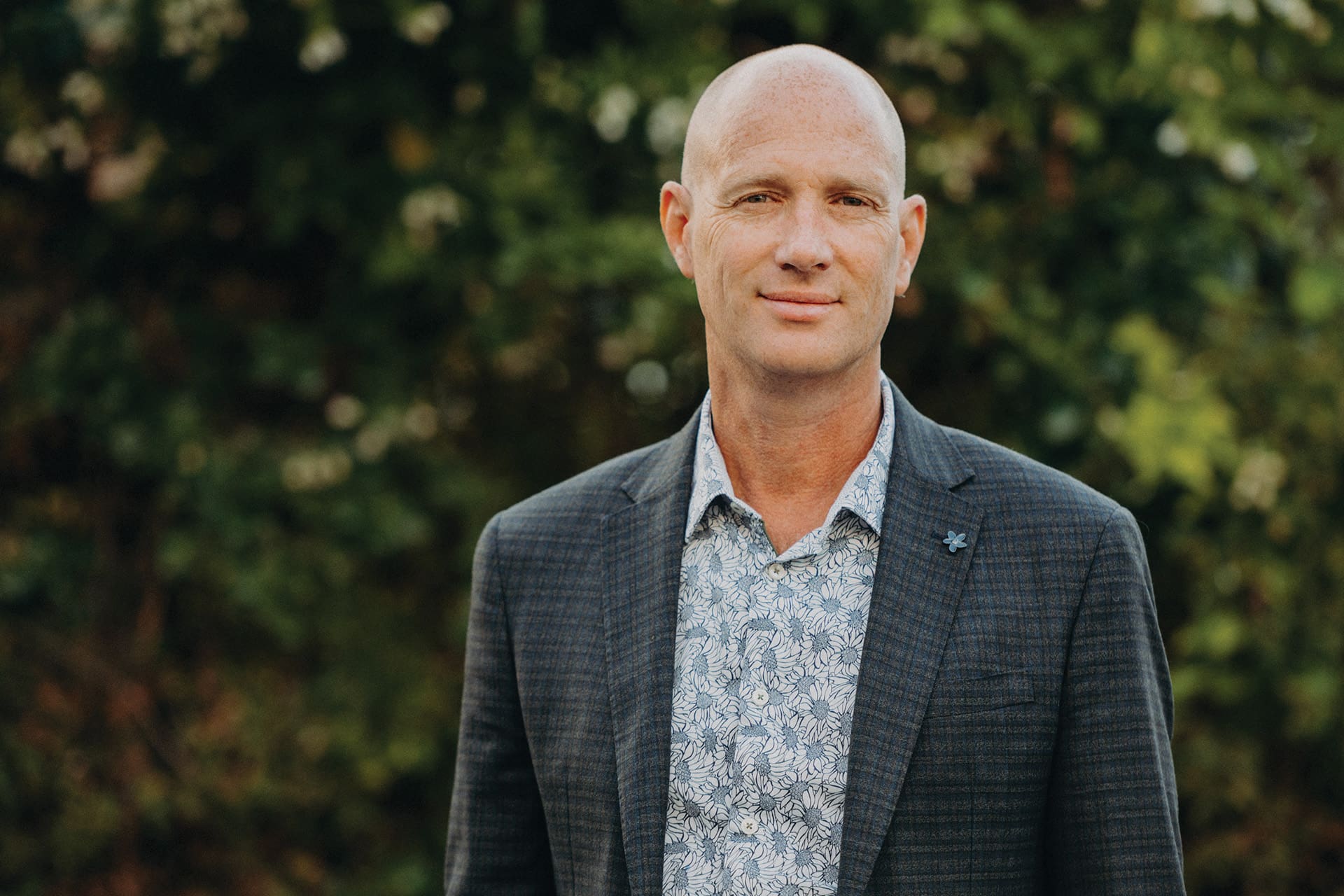
What should I eat? And when should I eat in order to live longer?
We’re modern humans with ancient biology and our bodies are not keeping up with the diet changes that we are experiencing with the typical Western diet. A good example of that is the amount of sugar that’s in our diet, compared to diets from a hundred thousand years ago. We’ve got an epidemic at the moment with diabetes and health issues that we are learning are caused a lot by how we’re eating and that we’re not exercising as much as we should; it’s actually overloading our cells and putting us under stress.
We talked about the nutrient sensing switch. This switch does two things; when we eat, it tells the body how to assimilate those nutrients, and when we don’t eat, it triggers a cascade which helps clear up some of the junk and broken proteins and cells that aren’t working as well as they could.
First thing is that it’s really quite good if you don’t snack. The reason for that is the body needs to have some time where it is hungry so that it can process and get rid of some of the junk in our cells. If you do nothing else but just eat three times a day, that’s good for you, of course in moderation.
If you’ve got a great day and there’s lots of food floating around, then don’t not eat. It’s just as a rule, if you can eat just three times a day and avoid snacking, it’s quite good for you. If you want to take it a little bit further and make yourself hungry for a little bit more than that, and you miss breakfast a few days a week, or even just on a regular basis, then your body will go into a phase where it’s actively cleaning things up.
Personally, I have two days a week where I don’t eat for 24 hours. I enjoy my Sunday dinner and then I don’t eat again until teatime on Monday. And then I don’t eat again until Tuesday and then it’s back to normal.
There are a couple of reasons why I follow this strategy. It’s good for me because it flips me into this fasting mode, which helps clear out the junk. But also I really enjoy food so it’s quite good if I take a couple of days where I have lower calories, which allows me to sneak the good food during the rest of the week. What researchers are finding is it’s not what you eat, it’s actually how and when you eat. Those two days allow me a bit of slack so that I can eat a bit more on the other days.
There is an interesting scientist called Valter Longo, who’s developed something called the fasting-mimicking diet. What he proposes is that we should fast for five days once every three months or once every six months, which is a big ask for a lot of people. He’s developed a diet which gives you a bit of food, but very low calories and it tricks the body into thinking it’s fasting.
Over those five days, you go into ketosis, you stimulate autophagy, which is the clearing out of these cells. And then you stimulate your stem cells to regenerate around the end of the fifth day. When you start eating on the sixth, you feel quite amazing. This triggers a bunch of chemical processes in the body which are remarkably healthy.
The data that I’ve seen shows that for people who’ve got autoimmune diseases, it can have a real beneficial effect. But it’s not a small thing to not eat for five days, so you’ve got to have a chat to a doctor or a pharmacist and discuss that before you do it.
We have this concept of living longer, but it’s important to have that quality part in there as well, because there’s no point being bed-bound for 20 years.
No, I met a really interesting person in a hospital. He’s a psychiatrist and we were visiting the hospital on an internship, and he was all about squaring the curve. You don’t want to be in decline for the last 20 years of your life. What do they say? Slide into that coffin with a glass of wine in one hand.
If you can make the last 20 years of life as full-on healthy as possible, then that’s what it’s all about, stopping that decline. That scares me slightly. I’d much rather be pretty fit and able and have that final glass of wine, and then have that heart attack.
We live in a very youthful society. Is that an issue? We have all of this knowledge and insight, but we tend to forget about our elderly. Is that going to change?
I hope so because ageism is a major issue. It affects the outcomes of your health if you are not ageing well, in terms of your mindsets that actually manifestly impacts your body. There is research that shows that if you perceive yourself to be in a stressful situation, somehow that manifests physically to shorten your telomeres, which are the tips of your chromosomes, and the shorter your telomeres are, the worse your health outcomes are.
It’s actually really important that you’re heading to ageing quite positively. I think we’re getting much better at that. But if someone’s ageist, you’re actually affecting yourself because you’re going to get to that age. You’re fortunate if you get old, versus the other side of the equation.
I think as a society, we could do so much better. If you look at some of the non-Western communities that look after their families; their elders are kept close and they are revered for their wisdom and their input, versus packing people up and putting them in rest homes where there’s no way out of that. There’s only one way out of that rest home.
I think we can age better and I think we can age smarter. That’s on the cards. I think that’s going to happen.
Is having a society that values the elderly part of longevity?
Absolutely. I don’t know why this has happened but the experiences, the wisdom, the social value that older adults can bring to a community is significant. There is a time when it is suitable to go and just rest up, if you will, in a rest home. But I think it does need to change.
I’ve been watching what’s happened in America with rest homes and COVID, because something like 40% of the deaths associated with COVID actually occurred in rest homes residents.
People are starting to ask, is that actually the best place to age? Would it be better with technology, with sensors, with just the ability for people to care? Wouldn’t it be better to be ageing in my own home, around things that I love?
There may be quite a radical shift after we get through this pandemic on exactly what is the best way to age and how we value older adults. Scarily, I’ll be there faster than you know it, so hopefully things have changed by the time we get there.
We know that too much sugar is bad, and you shouldn’t have too much alcohol and there are still lots of people smoking, but we still do all this. Is it something beyond education?
I think it’s education over generations. I love a glass of scotch like the next Scotsman and I probably enjoy too much of it. I’ve had it embedded for the longest time that smoking isn’t good for me. I enjoy a scotch at the end of the day, and I’m getting better at not doing that. But, there is a psychological element to it and good things take time.
When I think about alcohol, that’s an education process. As I know in my heart of hearts, it’s as bad for me as smoking, but disengaging from having a drink is a different matter. Maybe it’s something which can happen over a generation where we teach the kids what to do. As long as they don’t look at what we do and pay attention to what we say, perhaps that’ll do the trick.

Did you make any fundamental changes throughout the course of writing this book?
Over the last 8-10 years, you start to see that there’s more information coming through about ageing. I feel a bit slow that I didn’t get onto it earlier, but you get to the point where you go, ‘Other people are doing this, so I should start doing it as well’.
I’m definitely doing more alcohol-free days. I’ve definitely taken some of the molecules that are coming through now that we haven’t had before. I take a stack which boosts my NAD. I take a stack which activates certain repair mechanisms for my DNA and a couple of other things which appear to have some longevity benefits.
I’ve been more focused on books than exercise. Exercise has definitely come to the fore as something I need to do more of and I plan to do that.
Going back into some of the molecules, can you give me a bit of a list of some things that I should look at?
There’s a really interesting molecule which comes from the Himalayan Tartary buckwheat, which is a very obscure vegetable in China and the Himalayas.
It’s got a particular component in it that protects us from oxidative stress in a new way. If you have a free radical in your cell and that free radical wants to stabilise itself, it goes and jumps onto a piece of your DNA and rips off a molecule there and the free radical becomes stable, and then that DNA strand becomes radicalised. It wants to go and stabilise itself. And so it does that, and it’s like a chain reaction down your membrane creating damage as it goes.
What this molecule does is it acts as a circuit breaker, so you don’t get the chain reaction of damage down your DNA or your cellular membrane.
There are two aspects of that that’s important. One is that people take antioxidants because they want to reduce their oxidative stress, but what’s been become well known in the last half dozen years is that you need free radicals. Free radicals are used by the cell to message across the cell or between cells. The immune system actually uses free radicals because part of that immune response is to pepper the bug or virus with free radicals. It’s the first stage of our immune system before the rest of it kicks in and starts to get rid of that virus or bacteria.
We need healthy levels of free radical signalling, and if you swamp your body with the healthy antioxidants, you actually can mute that free radical signalling mechanism. For the first time we’ve got something which protects our delicate cellular machinery without interferring with that free radical signaling. That’s a real breakthrough that no one’s come across until now. And it’s a breakthrough that we will hear more and more about. That’s a molecule everybody should be taking.
NAD, is a particular enzyme in our cells that’s involved with repair and maintenance and energy generation in our cells. We have these genes called sirtuins, which are there to maintain our DNA and they need NAD to function properly. So as our NAD drops off as we age, these repair and maintenance and energy enzymes can’t act as well as they used to. And that is responsible for why we get some decline in our cells and our mitochondria. Boosting those levels up and getting that going well is really important.
Then the other thing is senescent cells. That again means nothing to many people, but senescent cells are cells that stop dividing in our body and they’ve got a purpose. When you scar, you have to have a way to turn off those scaring cells, otherwise you end up with a big lump of scar tissue. Or it could be that a cell has turned cancerous, and the body needs a trigger to turn it off.
When you’re young, those cells get cleared out and that’s all good. For some reason, as we get older, the body doesn’t pick up that the senescent cells are sitting there, so it doesn’t clear them out like they should. I liken it to having a hoarder living next door and they’ve got a smelly, horrible, polluted backyard, which kind of wafts over to your place and has an effect on your health. That’s what a senescent cell does in your body. It sits there and releases these toxic chemicals, which actually pollute the cells around it. Scientists have worked out that’s actually part of the cause of why we get these conditions as we age.
They’ve been working on identifying how we clear them out and they’ve managed to do that. When they do it in a mouse model, they can extend that mouse’s lifespan by 30 percent. So there are molecules that we can all access right now that can actually trigger the clearance of those cells. There are clinical trials happening right now on those molecules and the molecule I’m thinking of right now is called fisetin.
If you pop on to clinicaltrials.gov, which is the registry of all the clinical trials, you’ll see a whole bunch of work happening right now to see what happens when you take this in the older adult, whether you can clear out the senescent cells and what health benefit it delivers us. We probably won’t get an extra 30 percent longevity by taking it, but there’s a pretty good chance that we’re going to get some serious health benefits by clearing up those senescent cells.
If we go back to the molecule from the Tartary buckwheat. How does it go from being a plant on a mountain, to a molecule that people are taking?
It’s almost like the chicken before the egg in this case. The guys who researched this are rock stars in the biology world, they think at a molecular level. What they picked up on, that no one else had, was that oxidative damage is actually only one small portion of the damage which triggers a cascade of damage down the cell.
They picked up that the free radical basically radicalised cellular components and then that triggers a cascade of damage. They went looking for something that could interfere with it and they found a whole bunch of molecules. But this particular one is the one that’s got the highest affinity for that circuit breaking effect. That’s how they found it. It’s like this vegetable has been plucked out of obscurity and is now going to play quite a significant part in human health going forward.
There’s a lot of indigenous knowledge in terms of the benefits of different plants, and it feels like we’re only scratching the surface in terms of rediscovering some of that. How much potential do you think is sitting there in some of these rainforests and on the sides of mountains?
A phenomenal amount of potential. If you really want to be brutal about who we are and what we are, we’re a bunch of molecules and we’ve got a bunch of receptors which trigger cascades. So it just makes sense that there’s going to be some keys that we don’t know about yet, that fit into locks that we haven’t discovered yet, that will have a benefit on our health.
Every new drug that becomes available to us is another new key that someone’s discovered or that’s been there a while and they’ve just refined it slightly, that means that only affects a subset of that particular lock, so to speak.
We’ve got a rich mine within the Amazon and within our seas that we will just keep discovering things and we’ll get smarter and smarter because we’re starting to understand what these receptors look like. That way we can put those receptors on a chip, then we just chuck a whole bunch of molecules at it, and very quickly we can pick up whether that molecule will have an effect on that receptor. I think we’re actually coming out of the stone age of medicine and starting to get smart.
Are we going to look back at some point and realise we should have actually been letting our immune system work a little bit harder in places?
I think that’s a brilliant point. I couldn’t agree with you more. I also think we’re letting our kids down when we don’t let them fail, because it’s not just an immune system that we’re building, we’re building resilience and mental immunity as well.
I think maybe in 50 years’ time, we need to let kids fall over and break bones, fail, do stuff that they aren’t good at, and let them know they’re not good at it so that they find out what they are good at. Something has to change because there is an epidemic of mental health issues that our younger generations are dealing with.
I think that there are unintended consequences of the bubbles that we’re creating for our kids. Of course, we want the best for them. We want life to be good and easy, but are we helping? I don’t know.
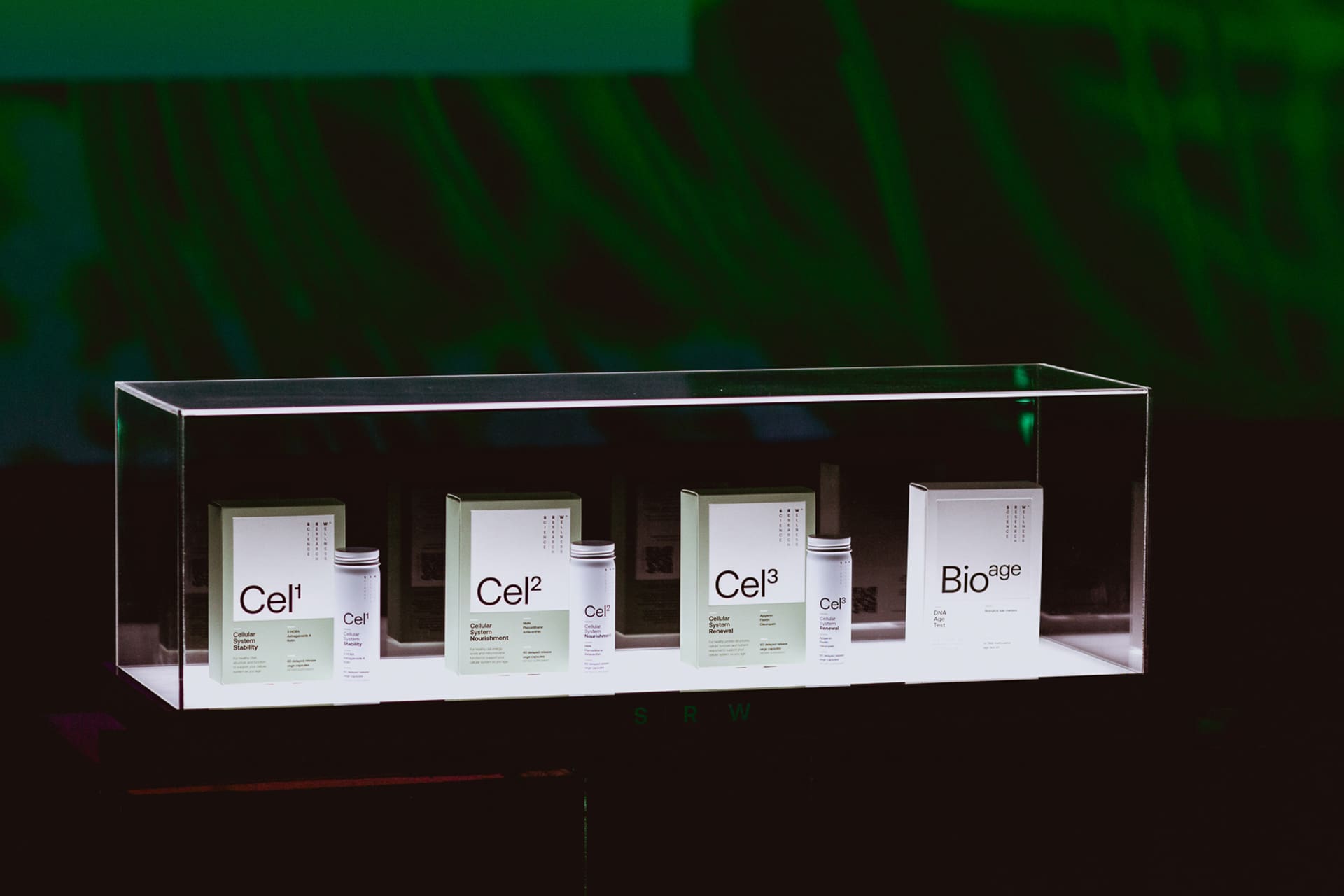
Formulated for people recovering from illness or injury, Imm¹ supports a healthy immune response for overall wellbeing
